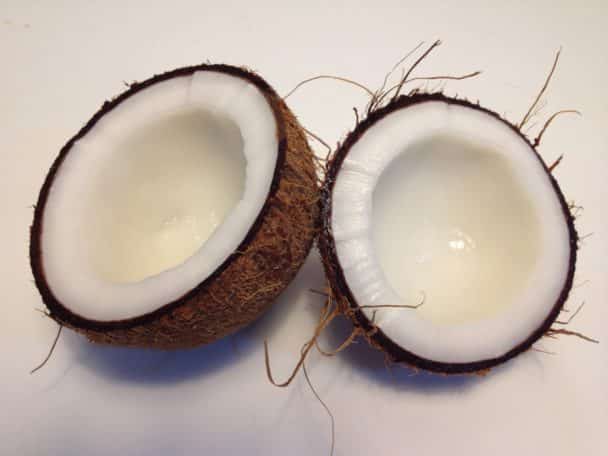Lauric Acid in Coconut Oil
Lauric Acid Benefits. Coconut oil has been a staple for hundreds of years. It has always been used in tropical countries for dietary purposes, skin and nail care, moisturizers, and hair care.
However, in the past decade, there has been a tremendous amount of research done on coconut oil and its benefits to the cardiovascular system.
In this article, I will be reviewing several research studies that were used to assess the claims that coconut oil was beneficial to humans cardiovascular health. The major producer of coconut oil in the Philippines, second in India.
Virgin Organic Oil Versus Refined Coconut Oil
Coconut oil is a tropical oil. It is either classified as refined, bleached, or virgin coconut oil.
- Refined coconut oils are referred to as coconut oil that has been bleached or deodorized.
- Bleached coconut oil is not a chemical process, but it is one that removes the impurities. During the bleaching process, the oil heated to a high temperature in order to destroy the germs or fungal spores. Coconut oil is able to stay on the shelf longer because the bleaching process destroys the unsaturated fatty acids that are left in the oil.
- Virgin coconut oil has no industry standard. Therefore, any company can use the label for their product. This is why the reputation of the company producing virgin coconut oil is important. For the purpose today these trials, virgin coconut oil was used.
Related Articles
Health Disparities in Mississippi
Dandelion Tea and Diabetes
Is AMLA Good for GERD?
Atrial Fibrillation and High Blood Pressure
How to Use Coconut Oil
Coconut oil is resistant to oxidation, which makes it a good oil to use for cooking.
It also has a low smoke point, which makes it suitable for shallow frying, but not deep-frying. Overheating coconut oil can lead to potentially carcinogenic substances.
Coconut oil has a high amount of saturated fatty acids, therefore, it is classified in the same category as other fatty acids such as palm oil, butter, and animal fats.
Lauric acid is the main fatty acid in coconut oil. Lauric acid can be classified as either a long -chain or medium-chain acid. However, in terms of digestion and metabolism, it acts more like a long-chain fatty acid because the majority of it is absorbed by other fatty acids.
Medium-chain fatty acids are absorbed in the portal vein. Medium-chain fatty acids are water-soluble, therefore, they are able to be absorbed faster in the small intestine.
Coconut Oil Benefits and Heart Benefit
In these studies, all of the experiments were done on humans. The study included the consumption of edible coconut, coconut oil, coconut milk, and coconut cream.
The studies were done on people who consume large amounts of coconut. The countries that were included were the Philippines, Sri Lanka, Polynesia, and Melanesia.
There was a low incidence of cardiovascular disease among the people of these countries that consumed coconut. It was also noted that some of the populations consume a diet that is low in sugar and high in fiber, as well as consuming coconut.
Coconut Extra Virgin Oil Increases HDL and Decreases Waist Circumference
According to a study that was performed on people presenting with coronary artery disease, angina, hypertension, and elevated cholesterol.
In the first three months, the subjects that had taken the extra virgin coconut oil had reduced body weight, reduced insulin, and reduced HbA1C levels.
During the second stage which was the 3 – 6-month range, the subjects maintained the reduction of the body weight. In addition, there was an increase in HDL levels.
According to the authors of this study, the intake of this kind of saturated fat sometimes meets strong opposition.
However, there have been no studies that have proved the association between intake of saturated fat and cardiovascular disease.
The authors go on to say, “Nonpharmacological interventions are essential for risk factor control in secondary prevention among patients with coronary disease.
Our study showed that a diet rich in extra virgin coconut oil seems to favor the reduction of WC and the increase of HDL-C concentrations, aiding with secondary prevention for coronary artery disease patients”.
Lauric Acid Side Effects
The only side effects reported for lauric acid are diarrhea and some skin problems when applied to the skin. Diarrhea usually happens when a person takes a large amount of coconut oil in the beginning. Overall, coconut oil is very safe.
Related Articles
Dandelion and Diabetes
Benefits of Motherwort
Benefits of Aged Garlic
Where to Buy Lauric Acid or Coconut Oil?
Since you can obtain coconut oil from Extra Virgin Coconut oil, there are a variety of places where you can buy coconut oil or lauric acid. One of the cheapest places to buy coconut oil is Amazon.




I didn’t know it had so many good heart & health benefits!! How do you find it compared with avocado oil?
I have not done a whole lot of research on avocado oil, but I have heard good things about avocado oil!
I love coconut ????